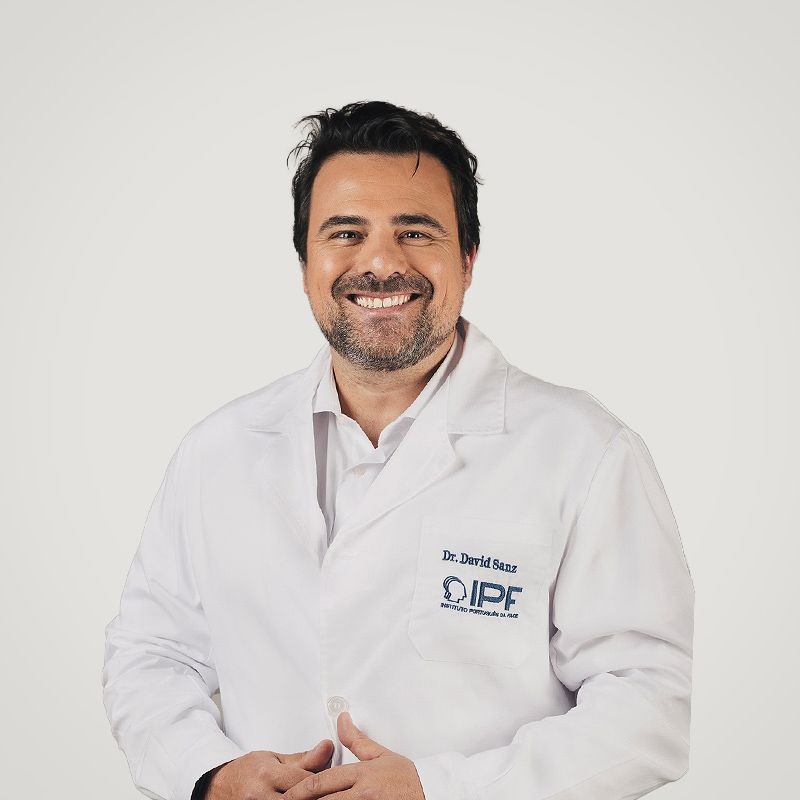ADVANCED IMPLANTOLOGY / ORAL AND MAXILLOFACIAL SURGERY
DEPARTMENT OF ADVANCED IMPLANTOLOGY/ORAL AND MAXILLOFACIAL SURGERY
The Portuguese Institute of the Face offers the most advanced treatments in the field of implantology and oral and maxillofacial surgery. Primarily for those suffering from the absence of teeth in an advanced state, known as edentulism.
"EDENTULISM
Edentulism refers to the absence of one or more teeth in the oral cavity.
The loss of all teeth in the oral cavity has a quite significant impact on the quality of life of patients. In addition to functional limitations, there are also psychological and social constraints with negative repercussions on quality of life and well-being.
Reasons that lead to permanent tooth loss throughout life include pathological processes such as carious lesions and periodontal disease, trauma, or conditions such as oral cancer, as well as non-pathological processes related to dental procedures.
SIGNS AND SYMPTOMS
Sure! Here’s the translation:
Difficulty in chewing
Difficulty in communication
Difficulty in speaking
Compromise of facial aesthetics
You should schedule an appointment if you have any sensation and/or pain from poorly fitted dentures, failure of previous treatment with dental implants, infection, a history of dental implant loss, insufficient bone in the jaw, failure of bone grafting in the jaw, or difficulty in eating due to oral trauma associated with the denture.
DIAGNOSIS
The team will gather your medical history and conduct a suitable objective examination to obtain an accurate diagnosis of your case. Additional diagnostic tests such as orthopantomography or computed axial tomography (CAT) may also be requested.
TREATMENTS
Zygomatic Implants
Zygomatic implants are an alternative solution to traditional implants when the available bone does not allow for the placement of simple single implants. These implants are placed in the zygomatic bone, located above the maxilla, in the area commonly referred to as the "cheekbone." Zygomatic implants were developed for those who have lost significant bone in the jaws or for people who have previously tried classic dental implants without success.
By placing zygomatic implants, the patient avoids the need for bone grafts. This is a predictable and safe technique, performed under general anesthesia, with the possibility of rehabilitation with a fixed prosthesis on the implants on the same day as the procedure.
The level of satisfaction among patients with zygomatic implants is very high, with studies showing success rates of 97% over 12 years.
Customized Subperiosteal Implants
In very specific cases, they are an alternative for patients who have a small zygomatic bone or for patients in whom the zygomatic implants themselves have failed.
These implants are titanium structures placed over the bone and fixed to it with mini-screws. Moreover, the structure is designed using high-precision software that customizes the implants to the patient’s bone.
TREATMENT OF ORAL AND MAXILLOFACIAL DISEASES
Department of Oral and Maxillofacial Surgery
The Oral and Maxillofacial Surgery Department of the Portuguese Face Institute is dedicated to the evaluation, diagnosis, treatment, and rehabilitation of oral and jaw pathology.
Our team focuses on interventions performed under the comfort of general anesthesia, which include: extraction of impacted wisdom teeth (impacted third molars), enucleation of jaw cysts, and extraction of multiple teeth under general anesthesia in patients who cannot tolerate dental treatments under local anesthesia.
The signs and symptoms of different oral and maxillary pathologies may manifest only in radiological exams or may present more intensely with swelling or edema of the jaws, repeated infections, or reduced facial sensitivity.
BENIGN / PRE-MALIGNANT DISEASES
The most common diagnoses in patients with oral and maxillofacial surgical conditions include:
IMPACTED THIRD MOLARS (IMPACTED WISDOM TEETH)
More commonly known as wisdom teeth, they are the last to erupt in the dental arch, typically between the ages of 16 and 20.
Currently, third molars are considered unnecessary for human development.
At the Portuguese Face Institute, we perform the extraction of all 4 impacted wisdom teeth under general or local anesthesia with an exclusive protocol that allows the patient to return home 6 hours after the procedure.
Cysts of the Maxillae
Here’s the translation of the paragraph to English:
"They are injuries of great variety that deserve a precise diagnosis.
For the most part, they are benign, but there are cysts with malignant potential that merit special attention.
About 51% of the cysts are inflammatory, and if left untreated, they can reach large sizes and weaken or compress important anatomical structures. In the early stages, most of these cysts can be treated safely under local anesthesia. For larger cysts, we recommend treatment under general anesthesia."






